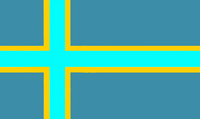Indian Empire: Difference between revisions
IndianEmpire (talk | contribs) No edit summary |
IndianEmpire (talk | contribs) (added etymology) |
||
| Line 58: | Line 58: | ||
Indian Empire is considered to be one of the most developed nations in the world. Empirians have a very high standard of living, with the world's highest rating on the Human Development Index as well as education and healthcare. Indian Empire also has the world's highest levels of economic equality and social mobility. | Indian Empire is considered to be one of the most developed nations in the world. Empirians have a very high standard of living, with the world's highest rating on the Human Development Index as well as education and healthcare. Indian Empire also has the world's highest levels of economic equality and social mobility. | ||
=Etymology= | |||
==Prior to colonial rule== | |||
Prior to colonial rule, the islands were inhabited by the [[Impiro People (Indian Empire)|Impiro People]]. | |||
==Colonial Rule== | |||
The Impiro name first originates from Spanish colonial rule in the 15th and early 16th century, the islands initially being called "Espana Impiro" | |||
The Etymology of Indian Empire's name originates from the indigenous [[Impiro People]] , along with the Danish and Spanish History on the islands. Under Denmark, the islands were called "Dansk Indiske Impiro". | |||
==Independence== | |||
The name of Indian Empire was anglicized from "Indiske Impiro" to "Indian Empire" upon Independence from Denmark in March of 1965. | |||
=History= | |||
Revision as of 11:07, 24 July 2020
The Parliamentary Republic of Indian Empire Indian Empire | |
|---|---|
|
Flag | |
| Motto: Kærlighed, Forandring og Mod | |
| Anthem: Vi Lever Alle I Harmoni | |
 | |
| Capital and largest city | Povlsen |
| Official languages | English, Spanish, Danish |
| Ethnic groups (2020) | Hispanic, Empirian, Danish |
| Demonym(s) | Empirian |
| Government | Parliamentary Republic |
• Prime Minister | Juan Rodriguez |
| Legislature | House of Commons |
| Establishment | |
• Spanish Colony | 1520 |
• Danish Colony | 1660 |
• Independence | March 29, 1965 |
| Area | |
• Total | 273,982 km2 (105,785 sq mi) |
• Water (%) | 1.22% |
| Population | |
• Estimate | 58,652,471 |
| GDP (PPP) | 2020 estimate |
• Total | 2,724,482,399,989.00 |
• Per capita | 46,451.28 |
| GDP (nominal) | 2020 estimate |
• Total | 2,724,482,399,989.00 |
• Per capita | 46,451.28 |
| Gini (2020) | 10 low |
| HDI (2020) | 0.932 very high |
| Currency | Kroner (IEK$) |
| Time zone | UTC-8 |
| Driving side | right |
| Calling code | 344+ |
| Internet TLD | .ii |
The Parliamentary Republic of Indian Empire, better known as simply Indian Empire, is a group of three islands located in the tropical Northern Pacific Ocean. The nation consists of three islands, most likely of volcanic origin, which formed around 50 years and were settled by the Impiro People. The nation became Independent of Danish Colonial Rule on 29 March 1965. The Population of Indian Empire is 56.8 Million as of the 2020 Empirian Census.
The Empirian Constitution, ratified in a 1962 Referendum, originally called for a Constitutional Monarchy, where the Danish King had some role in the country's democratic processes. However, this was overturned in a 2001 Referendum that coincided with national elections, making the nation currently a Parliamentary Republic. The current Prime Minister is Juan Rodriguez, who has served since 2015. Indian Empire is also a member of the OECD.
Indian Empire is considered to be one of the most developed nations in the world. Empirians have a very high standard of living, with the world's highest rating on the Human Development Index as well as education and healthcare. Indian Empire also has the world's highest levels of economic equality and social mobility.
Etymology
Prior to colonial rule
Prior to colonial rule, the islands were inhabited by the Impiro People.
Colonial Rule
The Impiro name first originates from Spanish colonial rule in the 15th and early 16th century, the islands initially being called "Espana Impiro" The Etymology of Indian Empire's name originates from the indigenous Impiro People , along with the Danish and Spanish History on the islands. Under Denmark, the islands were called "Dansk Indiske Impiro".
Independence
The name of Indian Empire was anglicized from "Indiske Impiro" to "Indian Empire" upon Independence from Denmark in March of 1965.
